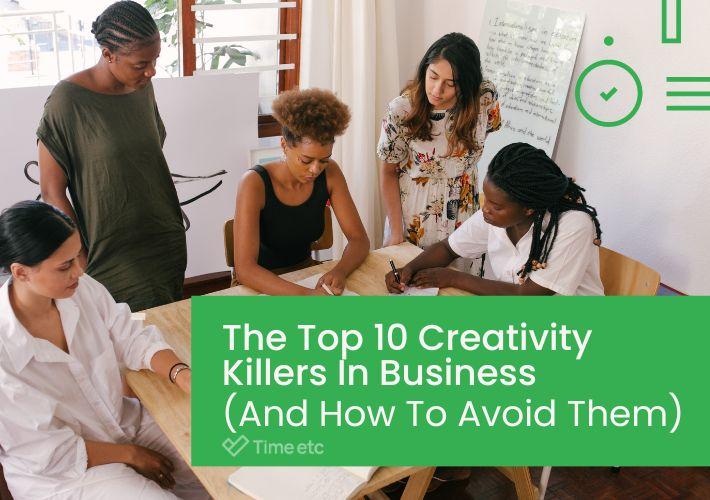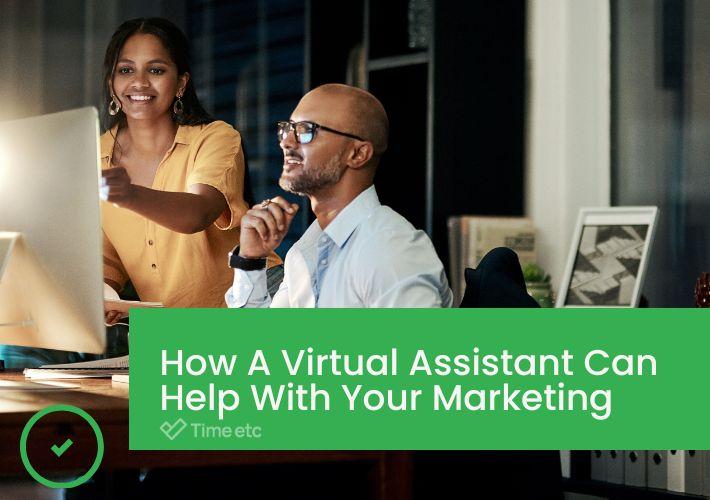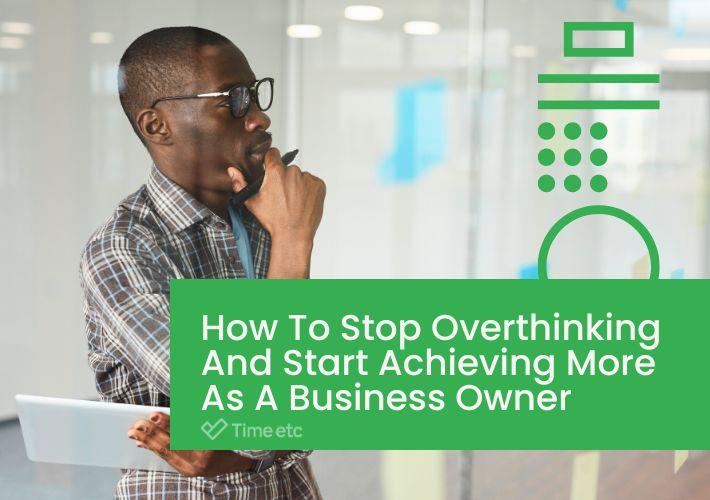Do you ever find yourself in a creative slump at work? Are you struggling to develop fresh ideas, feeling uninspired, or stuck in a rut? A 2012 Adobe study showed that 75% of adults felt they were not living up to their creative potential in their workplaces.
So what causes these creativity crises? The truth is, there are many creativity killers that can derail even the most talented business owners and imaginative teams. However, the good news is that these killers are avoidable.
Here you'll learn about the most common creativity killers in business and how to beat them:
Why creativity matters in business
Most people think of creativity as a characteristic reserved for artists or musicians. However, creativity is vital to business success. In fact, about 60% of CEOs cite creativity as the most important leadership quality. Creative people can think outside the box and come up with solutions to difficult problems. They're also better at developing innovative ideas that set their business apart from the competition.
Let’s dig a little deeper.
Creative thinking in business is about finding new and innovative ways to solve problems, generate ideas, and create value. It leads to the development of new products or services, new ways of marketing or selling those products, and efficient strategies for running a business.
Creativity also fosters a positive work environment. Employees feel more engaged and motivated when encouraged to think outside the box and share their ideas. This, in turn, leads to increased productivity and improved job satisfaction.
Moreover, creativity helps businesses adapt and stay resilient in uncertain times. When the unexpected happens, creative businesses develop new solutions and strategies quickly.
The 10 biggest creativity killers
Unfortunately, creativity is most often stifled without us realizing it, and we find out when our levels have already plummeted.
Here are the most common creativity killers in business:
1. Lack of resources
One of the biggest hurdles to creativity is the lack of resources, namely time and energy. When racing against the clock to finish everything, it's easy to lose sight of the bigger picture. Instead of focusing on the creative process, you end up just "getting it done." While it might seem like you're being productive, the truth is you're killing your creativity.
Many entrepreneurs are also guilty of over-working themselves and not getting enough sleep. And let's be honest, no one is at their best when they're sleep-deprived.
See: 6 Steps To Get Back On Track After A Mental Block
2. Lack of expertise
Creativity expert Professor Teresa M. Amabile identifies expertise as one of the essential components of creativity. As Amabile explains, expertise encompasses everything a person knows and can do in the broad domain of their work. This is usually acquired through formal education, practical experience, or interaction with other professionals.
Regardless of the source, expertise is critical for creative thinking. Amabile describes expertise as a "network of possible wanderings," expanding the intellectual space for exploring and solving problems. The larger this space, the more opportunities for generating new ideas and unique solutions.
In contrast, lacking expertise limits the mind's ability to explore new paths. You can't think beyond what you know and can do. The result is a creativity-killer: the inability to develop a new idea when needed.
3. Lack of motivation
If you've ever felt creatively stuck, chances are that motivation played a significant role. According to Professor Amabile, "Expertise and creative thinking are an individual’s raw materials—his or her natural resources, if you will. But a third factor—motivation—determines what people actually do".
Creativity can take a serious hit when you don't feel inspired or appreciated. It's hard to summon the energy and enthusiasm to think outside the box when you don't feel connected to your work.
Amabile states that people are most creative when motivated by their interests, satisfaction, and work challenges.
Conversely, external pressures such as deadlines or too much work on your plate can inhibit creativity by diverting your attention away from the intrinsic rewards that would power you to push further.
See: Why Motivation Matters: The Key to Success for Entrepreneurs
4. Stress
While some people claim they perform better under pressure, most experts agree that stress does more harm than good to creativity. According to research, stress can trigger the body's instinctive response of "fight, flight, or freeze."
However, the constant need for adrenaline as part of the "fight" response can lead to negative physical and psychological symptoms, ultimately causing the brain to shut down, or "freeze."
On the other hand, the "flight" and "freeze" responses can result in an inability to face the pressure of the task and deal with it effectively. When the primitive brain stem uses up precious mental energy for survival, it limits access to the pre-frontal cortex, where real creative thinking can occur.
5. Fear
Fear leads us to prefer certified correct solutions. Something safe and non-conflicting, with a high degree of certainty that it will work and no one will laugh at it or scold us for it. Unfortunately, this type of mindset can significantly hinder creativity in the workplace. Instead of exploring different angles and untested strategies, we play it safe—often to the detriment of productivity and innovation.
To overcome fear and foster creativity, create a culture where risk-taking is encouraged. This means acknowledging that failure is a natural part of the creative process and that there is value in learning and growing from our mistakes. A work environment where employees feel free to pitch unconventional ideas without fear of ridicule or punishment will support innovative thinking.
6. Pessimism
A negative mindset can make you reluctant to build upon your creative ideas. You assume they won't be successful. This pessimistic attitude can stem from previous experiences where your creative efforts were unsuccessful. However, this self-doubt can lead to a self-fulfilling prophecy where you're less likely to take creative risks and pursue innovative solutions.
Not only does pessimism limit your own creativity, but it’s also a slippery slope that can lead to undermining the ideas of others, a surefire way to kill creativity throughout your organization.
To become more optimistic and open-minded, try to focus on the positive aspects of your creative work and any previous successes you've achieved. A more optimistic outlook will foster an environment of collaboration, experimentation, and innovation.
7. Perfectionism
Perfectionism is a personality trait characterized by an individual's pursuit of extremely high standards. While striving for excellence is generally thought to be a positive attribute, perfectionism for entrepreneurs can be a wolf in sheep’s clothing.
There are several reasons why perfectionism can be a creativity killer:
Fear of failure: Perfectionists are often driven by an intense fear of failure. This fear makes them reluctant to take risks or see their new idea through.
Analysis paralysis: Perfectionists will want to analyze every detail before making a decision. They end up getting stuck in a loop of analysis and planning.
Avoidance of collaboration: Perfectionists often have difficulty delegating tasks or collaborating with others. They may believe that no one else can meet their high standards. This can lead to a lack of trust and poor communication within teams, which hampers the collaborative and synergistic environment necessary for creative work to flourish.
Burnout: The relentless pursuit of perfection can lead to physical and mental exhaustion. Burnout can reduce an individual's capacity for creative thinking, problem-solving, and innovation.
See: The 3 Ps That Stop Entrepreneurs From Achieving More
8. Complacency
When you become complacent, you stop pushing yourself to try new things and innovate. In other words, "If it ain't broke, don't fix it". You become satisfied with the status quo and fail to recognize the potential for improvement. As a result, your creative spark dims.
The problem with complacency is that it can be insidious. You may not realize you've fallen into it until it's too late. In the world of business, complacency can be a significant creativity killer for various reasons.
One reason is that complacent individuals tend to resist change, perceiving the status quo as adequate. This resistance can create a stagnant environment, stifling new ideas and creative solutions.
Complacency can also lead to a decline in learning and growth. Complacent people tend to neglect personal and professional development, which—as Professor Teresa M. Amabile states—is a crucial component of creativity in the form of expertise.
Moreover, complacency risks breeding a culture of mediocrity. In such an environment, employees may feel there is no need to go above and beyond when "good enough" is accepted as the norm.
9. Lack of diverse perspectives
Diversity refers to the presence of people with different backgrounds, experiences, skills, and perspectives. It is a fundamental component of creativity, as it encourages different ideas and approaches.
A homogeneous environment may limit the scope and depth of creativity for several reasons:
Limited perspectives: When an organization lacks diversity, there is a higher likelihood that the individuals within the organization share similar viewpoints and experiences. The result is an echo chamber where ideas are not sufficiently challenged or expanded upon.
Reduced problem-solving capabilities: When people with different backgrounds and perspectives come together, they can approach problems from various different angles, leading to well-rounded solutions.
Hindered innovation: Creativity often flourishes in environments that encourage unique ideas and perspectives. A lack of diversity can create a culture where conformity and groupthink prevail.
To build more creativity within an organization, it is essential to prioritize and embrace diversity in its many forms. This can be achieved through hiring practices, professional development programs, networking opportunities, and a strong organizational culture that celebrates and encourages a range of perspectives.
10. Unclear goals
A lack of clarity regarding the organization's goals can significantly impact creativity. When objectives are not well-defined, employees may become confused about what ideas and solutions to pursue. This confusion can lead to a lack of focus and direction.
Moreover, ambiguous goals can give rise to a fear of failure. Employees may hesitate to take risks or push the boundaries due to uncertainty about the desired outcome. Consequently, their creativity is hampered by the hesitation to explore new ideas and innovate.
Organizations should strive for SMART (Specific, Measurable, Achievable, Relevant, Time-bound) objectives to ensure that goals are clear and meaningful.
More tips for tackling creativity killers
Need a little more inspiration to help keep your creativity levels high? Incorporate these tried-and-tested methods into your routine:
Prioritize working on your strengths
You’re more likely to experience a state of flow when you focus on areas where you excel. A state of flow is a mental state characterized by complete immersion and enjoyment in an activity. It facilitates creative thinking and problem-solving, as it allows individuals to make connections and generate ideas more easily.
Concentrating on your strengths also helps build self-confidence and self-efficacy. When you believe in your abilities and know you can excel in certain areas, you are more likely to take risks, experiment, and explore new ideas. This willingness to step outside your comfort zone can lead to more innovative and creative outcomes.
Lastly, working on your strengths enables you to develop expertise in specific areas. You become better equipped to generate novel insights and ideas as you hone your skills in a particular domain. This expertise can give you a unique perspective, allowing you to creatively approach problems and challenges.
See: Why You Should Write A "Stop-Doing" List Instead Of A To-Do List
Schedule creative time in your calendar
Just as you would schedule your daily tasks and weekly meetings, set aside dedicated time for creative activities. If you had an appointment scheduled in your calendar, I’m sure that in most cases you would never dream of missing it. So why not treat your creative work in the same way?
This time should be free of any external demands to produce results. Instead, make it a low-pressure environment for you to explore creative solutions without the fear of judgment or criticism holding you back.
Use these sessions as an opportunity to let your mind rest and wander freely. brainstorm ideas, experiment with different approaches, and test out new concepts.
See: Why Scheduling Creative Time Is Crucial For Success
Delegate time-wasting tasks to free up resources
As an entrepreneur, it's easy to get bogged down in all the day-to-day tasks that come with running a company. While they may seem harmless enough, the truth is that the more time and mental resources you spend on these low-level tasks, the less you'll have to spend where it counts the most.
This is why you should consider offloading time-wasting tasks to a virtual assistant (VA). They can help you with most regular responsibilities such as managing emails, scheduling meetings, follow-ups with clients, data entry, social media, content marketing, and more. Working with a virtual assistant also helps you to stay organized and efficient, allowing you to focus on your strengths and get much more done in less time.
If you're debating between hiring VAs and full-time employees, remember that virtual assistants can be up to 90% more cost-effective. This is because they don’t require benefits, vacation pay, office space, and other costs associated with an in-house team. Plus, they offer a higher degree of scalability, as you can increase or decrease your virtual team size at any time to suit you.
See: Delegate These 25 Recurring Tasks To Save Time Every Day
Collaborate with others
Creativity is often a collaborative process, and it benefits from the input of both experts and non-experts. Consider forming project teams that include people with diverse skillsets, backgrounds, experiences, and perspectives. This will help ensure that all ideas are heard and can be used to create something greater than the sum of its parts.
Step outside
Taking breaks and getting fresh air is an underrated way to boost creativity. It can be tough to come up with creative ideas when you've been staring at a screen all day.
Take a walk, explore a new area, or sit outside and people-watch. Changing your environment can help you see things in a new light and inspire fresh ideas.
See: 6 Ways To Help Inspire Your Next Big Idea
What's the bottom line?
Creativity is the lifeblood of any successful business, and preventing these creativity killers should be a priority for their leaders. With the right approach, we can avoid these killers and cultivate a culture of creativity that propels our companies toward success—now and for years to come.
Overcoming these creativity killers involves embracing new ideas, being mindful of motivation, and allowing ourselves the time and energy to be on top form for our creative work.
If you’re ready to start getting more done each day without compromising on the things that matter, Time etc is here for you. Our mission is to help hardworking and ambitious entrepreneurs take back control of their time by matching them with the best virtual assistants for their needs.
Speak to our team to get started, and we’ll set you up with a dedicated professional that’s ready to tackle those tedious and time-consuming tasks that are holding you back.
Or try a skilled virtual assistant for free today!







